I'm sharing not as a patient but as a spouse of one, my wife has been there for almost 30days, everything here seems to be top secret even to family members. It been my experience that with the 10min calls 3 times a week are rushed, the 2.5hr "family visits" are also rushed ...
About Tranquility Woods Addiction Treatment Center
They have a residential treatment program that’s a minimum of 30 days and goes up to 90 days. They have medication assisted treatment (MAT) for detox and treat alcohol use disorder and most other addictions including heroin, MDMA, cocaine and fentanyl.
While in the residential treatment center, you’ll receive treatment from 24/7 staff, a medical team, a behavioral health team and a holistic health team. The center is on 40 acres and offers two pools, a ping pong table, two basketball hoops, hot tubs, infrared saunas, gyms and walking trails.
You’ll receive individual addiction therapy counseling sessions and a weekly session with a licensed mental health therapist. You can also do a virtual therapy session with your family or bring them to an in person session.
You’ll also have small group therapy sessions that address topics such as how addiction affects your mental health. This dovetails nicely with dual diagnosis treatment. You can take advantage of yoga, acupuncture, massage and meditation while in the program.
They also have a partial hospitalization program (PHP) and an intensive outpatient program (IOP). The PHP is in Arnold and is Monday through Thursday from 11:30 a.m. until 4:30 p.m. This is an eight week program covering grief, loss, triggers, cravings, stress, anger and relapse. You’ll learn better problem solving skills and how to deal with family matters.
The IOP offers a morning or evening program in Arnold. The morning program is from 9 a.m. to 11:30 a.m. Monday through Thursday, and evenings are from 5:45 p.m. to 8:15 p.m. The IOP allows you to maintain some of your routine while getting intensive support.
Former clients highly recommend the center. They cite the incredible staff, clean rooms and amazing food. They also commend the staff for being outstanding and always available.
Latest Reviews
Rehab Score
Gallery
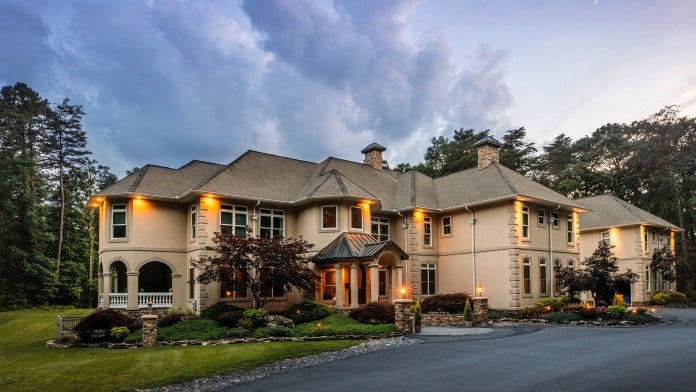
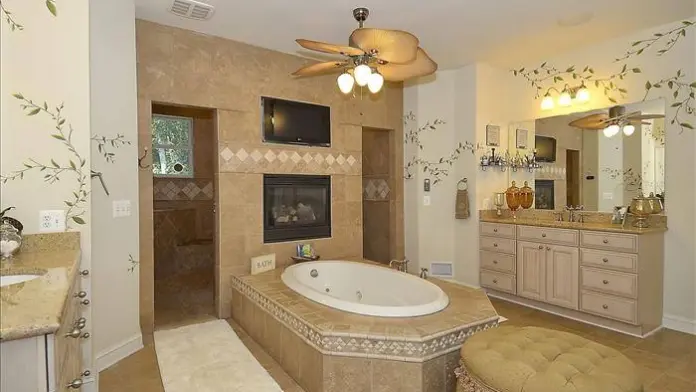
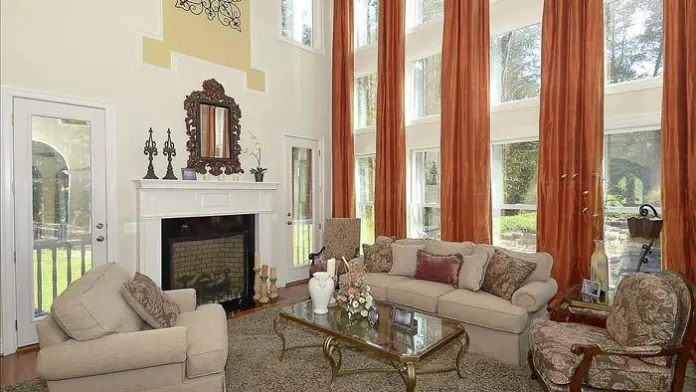
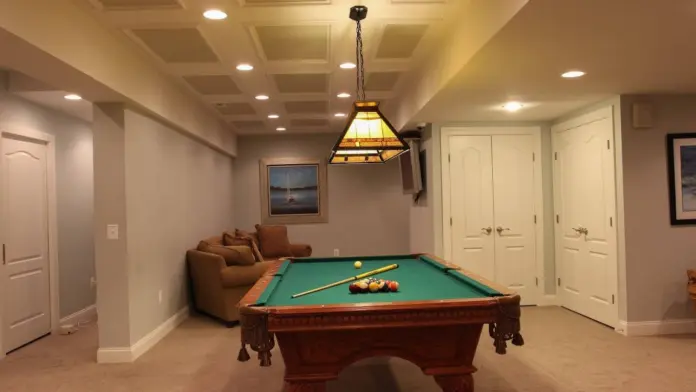
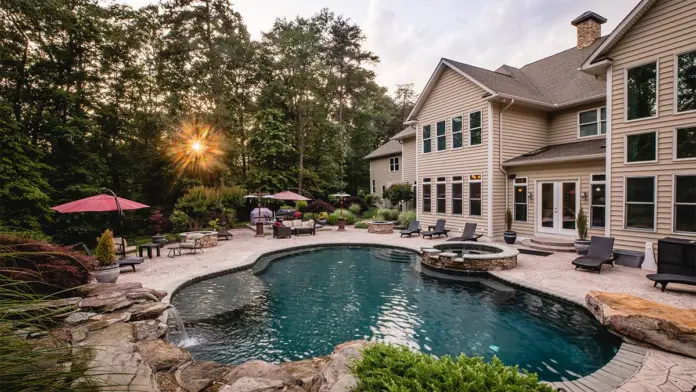

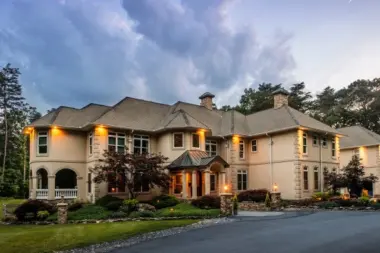
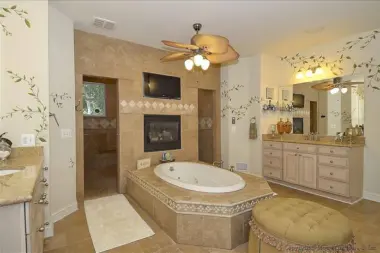
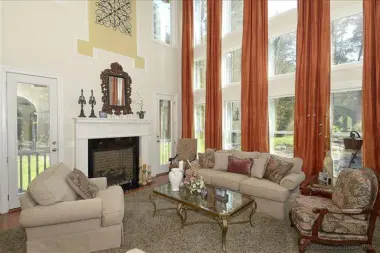
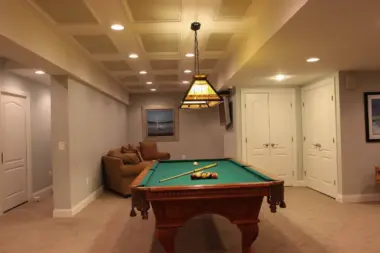
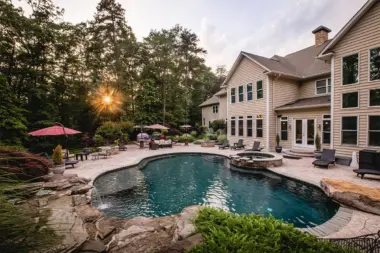
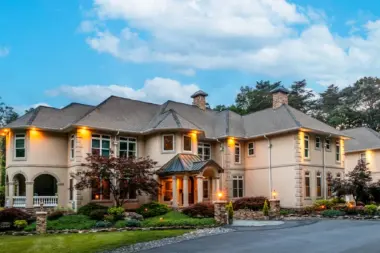
Accepted Insurance
Other Forms of Payment
Private insurance refers to any kind of healthcare coverage that isn't from the state or federal government. This includes individual and family plans offered by an employer or purchased from the Insurance Marketplace. Every plan will have different requirements and out of pocket costs so be sure to get the full details before you start treatment.
Self-pay involves paying for treatment out of your own pocket. You can use savings or credit, get a personal loan, or receive help from family and friends to fund your treatment. If you don't have insurance or your insurance plan doesn't cover a specific program, self-pay can help ensure you still get the care you need.
Financial aid can take many forms. Centers may have grants or scholarships available to clients who meet eligibility requirements. Programs that receive SAMHSA grants may have financial aid available for those who need treatment as well. Grants and scholarships can help you pai for treatment without having to repay.
Sliding scale payments are based on a client's income and family size. The goal is to make treatment affordable to everyone. By taking these factors into account, addiction recovery care providers help ensure that your treatment does not become a financial burden to you or your family, eliminating one barrier to care.
Military members, veterans, and eligible dependents have access to specific insurance programs that help them get the care they need. TRICARE and VA insurance can help you access low cost or no cost addiction and mental health treatment. Programs that accept military insurance often have targeted treatment focused on the unique challenges military members, veterans, and their families face.
Addiction Treatments
Levels of Care
Outpatient Programs (OP) are for those seeking mental rehab or drug rehab, but who also stay at home every night. The main difference between outpatient treatment (OP) and intensive outpatient treatment (IOP) lies in the amount of hours the patient spends at the facility. Most of the time an outpatient program is designed for someone who has completed an inpatient stay and is looking to continue their growth in recovery. Outpatient is not meant to be the starting point, it is commonly referred to as aftercare.
Residential treatment programs are those that offer housing and meals in addition to substance abuse treatment. Rehab facilities that offer residential treatment allow patients to focus solely on recovery, in an environment totally separate from their lives. Some rehab centers specialize in short-term residential treatment (a few days to a week or two), while others solely provide treatment on a long-term basis (several weeks to months). Some offer both, and tailor treatment to the patient's individual requirements.
Clients receiving support in a rehab aftercare program typically partner with their case manager and care team to identify and access the services that best align with their recovery needs and goals. Rehab aftercare services are designed to evolve with clients' changing needs to promote their long-term sobriety. Care modalities are highly customized and may include a range of medical, mental health, and social service resources, including peer coaching, career counseling, and 12 step program induction.
12-Step Programs include a set of guiding, spiritual principles, outlining a cause of action for recovery ~ Originally started by Alcoholics Anonymous (AA) in 1938, the program has since been adapted to address other addictions, as well, including NA (Narcotics Anonymous) in 1953 and CDA (Chemically Dependent Anonymous) in 1980. 12-Step Programs have helped millions of people recover from alcoholism and addiction, which is one of the reasons they are important ingredients at Tranquility Woods. 12-Step Programs include spiritual ~ non religious ~ principles.
Addiction intervention therapy is crucial for a recovery plan. One of the greatest gifts a loved one, friend or colleague can give someone is the gift of intervention. It can be and often is the gift of life. Intervention is an orchestrated plan by a family member friend or colleague to help someone seek professional help for an addiction. At Tranquility Woods, they can help you with the intervention process. They are in contact with interventionists across the country and they can refer you to a person that will fit your needs best.
A partial hospitalization program (PHP) is a short-term form of intensive rehab, usually for those with acute symptoms that are hard to manage but don’t require 24-hour care. PHPs have structured programming (i.e. individual and/or group therapy), and usually meet 3-5 days a week for around 6 hours (i.e. 9am-3m). Some PHPs are residential (patients sleep on site) and some are not, so patients sleep at home. PHPs can last from 1-6 months, and some offer transportation and meals.
For intensive-level rehab treatment, 24-hour clinical care in Maryland is an essential tool. Medical staff are available around the clock to supervise the process, which involves cleansing the body of toxins. Close supervision is necessary due to the potential risks of withdrawal symptoms. Medical experts on-site are available to prescribe medications and other forms of treatment to address these symptoms and ensure a safe detox process.
Detoxification is the elimination of toxins built up in the body over years of abuse. Depending on the individual, addictive substance, frequency of use in the duration of abuse, detoxification will vary. At Tranquility Woods, they will coordinate your detoxification care with our partnered detox physicians and programs. Medications and other holistic therapies are used to ease the symptoms and help provide for a more comfortable detoxification.
Treatments
The goal of treatment for alcoholism is abstinence. Those with poor social support, poor motivation, or psychiatric disorders tend to relapse within a few years of treatment. For these people, success is measured by longer periods of abstinence, reduced use of alcohol, better health, and improved social functioning. Recovery and Maintenance are usually based on 12 step programs and AA meetings.
Once a person has become addicted to a substance, drug rehab in Maryland is often necessary to overcome that addiction. These programs provide the tools individuals need to manage the physical, mental, and emotional issues involved and begin a successful recovery journey.
A Co-Occurring Disorder (Dual Diagnosis), is a substance abuse addiction occurring simultaneously with mental health issues. In order to treat Dual Diagnoses successfully, the two must be treated together. Treating each disorder individually, will almost certainly lead to relapse. The two problems are so intimately connected, they require very deliberate and specific care to address each of the issues simultaneously.
A combined mental health and substance abuse rehab has the staff and resources available to handle individuals with both mental health and substance abuse issues. It can be challenging to determine where a specific symptom stems from (a mental health issue or an issue related to substance abuse), so mental health and substance abuse professionals are helpful in detangling symptoms and keeping treatment on track.
Opioid rehabs specialize in supporting those recovering from opioid addiction. They treat those suffering from addiction to illegal opioids like heroin, as well as prescription drugs like oxycodone. These centers typically combine both physical as well as mental and emotional support to help stop addiction. Physical support often includes medical detox and subsequent medical support (including medication), and mental support includes in-depth therapy to address the underlying causes of addiction.
Programs
Adult rehab programs include therapies tailored to each client's specific needs, goals, and recovery progress. They are tailored to the specific challenges adult clients may face, including family and work pressures and commitments. From inpatient and residential treatment to various levels of outpatient services, there are many options available. Some facilities also help adults work through co-occurring conditions, like anxiety, that can accompany addiction.
Young adulthood can be an exciting, yet difficult, time of transition. Individuals in their late teens to mid-20s face unique stressors related to school, jobs, families, and social circles, which can lead to a rise in substance use. Rehab centers with dedicated young adult programs will include activities and amenities that cater to this age group, with an emphasis on specialized counseling, peer socialization, and ongoing aftercare.
Clinical Services
Cognitive Behavioral Therapy or CBT is a psycho-therapeutic approach that is designed to build trust between the counselor and the client. It has proven to be successful in treating alcohol and drug addiction. CBT is valuable in uncovering underlying emotional disorders and teaching patients to understand that many of their issues stem from their own thoughts rather than outside stimuli. By recognizing this and learning systematic techniques to change, individuals will be more likely to prevent those urges to drink or take drugs in the future.
Dialectical Behavior Therapy (DBT) combines standard cognitive behavioral techniques for emotional regulation and reality testing with concepts of distress tolerance, acceptance and mindful awareness, largely derived from Buddhist meditative practice. DBT has shown to be effective in treating chemical dependency and mood disorders. DBT is another individual therapy integrated into Tranquility Woods overall treatment program, specifically designed for each client.
Equine therapy can have a dramatic, positive impact for successful addiction therapy. It is well known across many therapeutic modalities, the benefits that horses provide to people. Since horses personalities are so similar and varied, like humans, it is easy for individuals to create connections with them. The equine program at Tranquility Woods helps clients build confidence, self-esteem and boundaries.
In group therapy sessions, clients recognize that many share their experiences and feelings, which helps to remove the sense of isolation and raise self-esteem. Group sessions encourage clients to help each other. They share coping skills and support one another. The group setting provides a safe and supportive environment for individuals to improve interpersonal behavior, communications and social skills. Group therapy is another powerful modality Tranquility Woods offers in its fully integrated program. Group sessions include topics such as grief, loss, anger, stress, and shame.
Individual, one-on-one therapy is the cornerstone of the Tranquility Woods program. Their individual program is unparalleled in the recovery community. Every patient we see is unique as are his or her problems and needs. Clients will benefit from a minimum of 5 and up to 7 hours of one on one individual therapy sessions weekly. This allows patients to express themselves privately and comfortably.
Motivational Interviewing (MI) is a clinical approach to helping people with substance abuse issues and other conditions shift behavior in positive ways. It is more goal-oriented than traditional psychotherapy, as MI counselors directly attempt to get clients to consider making behavioral change (rather than wait for them to come to conclusions themselves). Its primary purpose is to resolve ambivalence and help clients become able to make healthy choices freely.
Trauma therapy addresses traumatic incidents from a client's past that are likely affecting their present-day experience. Trauma is often one of the primary triggers and potential causes of addiction, and can stem from child sexual abuse, domestic violence, having a parent with a mental illness, losing one or both parents at a young age, teenage or adult sexual assault, or any number of other factors. The purpose of trauma therapy is to allow a patient to process trauma and move through and past it, with the help of trained and compassionate mental health professionals.
When you participate in couples therapy, you learn how to understand each other better, improve your communication skills, resolve conflict, and improve relationship satisfaction. Your therapist will help you develop skills in each of these areas to strengthen your relationship.
EMDR is a therapeutic modality originally developed to help process trauma. In an EMDR session, a patient is prompted to undergo eye movements that mimic those of REM sleep. This is accomplished by watching a therapist's finger move back and forth across, or following a bar of light. The goal is repetitive sets of eye movements that help the brain reprocess memory, which can significantly reduce the intensity of remembered traumatic incidents. Associated memories can heal simultaneously, leaving patients significantly calmer, more stable, and more emotionally relaxed.
Their family therapy for addiction treatment is critical to our recovery program. When a person has been struggling with addiction, the addiction always reaches out beyond the individual. Spouses, family members and close relationships often are strained. Families struggle to maintain a healthy communication and trust begins to break down. At Tranquility Woods, they offer weekly Family Education, as well as Family Visitation. In addition, they work privately, through one-on–one therapy, to rebuild honest communication and allow for trust to return to broken relationships.
Active addiction robs your body of nutrients. You need to restore a balanced diet to sustain recovery. Nutrition therapy helps you do this. You'll learn about the best foods for mental and physical health and how to establish healthier eating patterns in your life.
Recreational therapy (aka therapeutic recreation) uses creative and fun activities to help with addiction recovery. Recreational therapists lead patients in entertaining and engaging activities like sports or games; art (drawing, painting, sculpture); drama, music, and dance; and/or community outings (field trips) to improve patients' physical, social, and emotional well-being.
Creativity is inherently healing, and can help those in recovery express thoughts or feelings they might not otherwise be able to. Creative arts therapy can include music, poetry/writing, painting, sculpting, dance, theater, sandplay, and more. Unlike traditional art, the final product matters far less than the experience of creation and expression itself.
Tranquility Woods is proud of its recreation program. They know that recovery requires more than healing the mind, it requires learning to have fun again. Tranquility Woods offers an extensive array of activities, more than enough to satisfy every individual.
Amenities
-
Private Setting
-
Yoga Studio
-
Private Transportation
-
Private Rooms
-
Hiking
Staff & Accreditations
Staff
John Dombrowski, MD, FASA
Medical Director
Gregory Wright Jr., LCAD-S, LCPC
Clinical Director
Olu Taiwo, NP
Psychiatric Nurse Practionor
Madison Kane, LCPC
Mental Health Therapist
Accreditations

The Substance Abuse and Mental Health Services Administration (SAMHSA) is a branch of the U.S. Department of Health and Human Services. Established in 1992 by congress, SAMHSA's mission is to reduce the impact of substance abuse and mental illness on American's communities.
SAMHSA Listed: Yes

The Commission on Accreditation of Rehabilitation Facilities (CARF) is a non-profit organization that specifically accredits rehab organizations. Founded in 1966, CARF's, mission is to help service providers like rehab facilities maintain high standards of care.
CARF Accreditation: Yes
Accreditation Number: 269105

LegitScript has reviewed Tranquility Woods Addiction Treatment Center as part of their certification program, and has determined that it meets the LegitScript standards for legality, safety and transparency.
LegitScript verified in January 2017

State Licenses are permits issued by government agencies that allow rehab organizations to conduct business legally within a certain geographical area. Typically, the kind of program a rehab facility offers, along with its physical location, determines which licenses are required to operate legally.
State License: Maryland
License Number: 905756
Contact Information
171A Ryan Road
Pasadena, MD 21122




